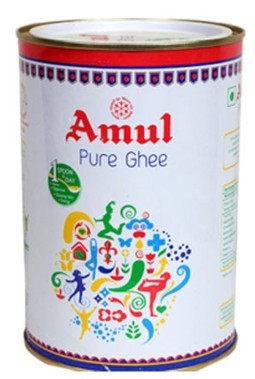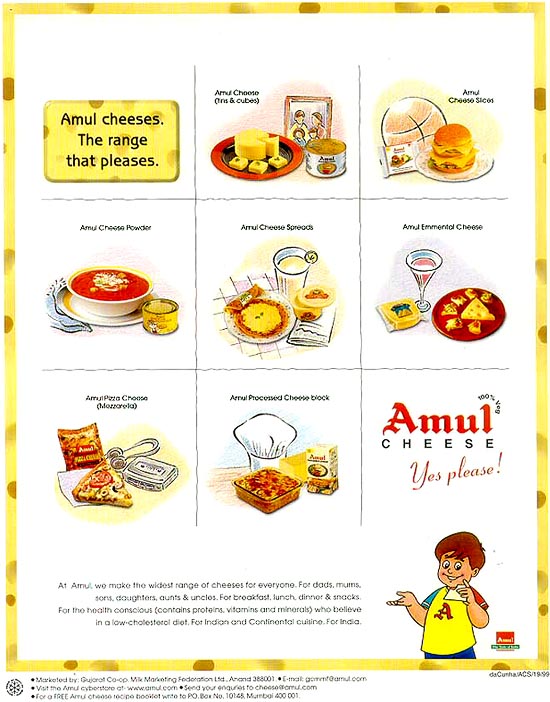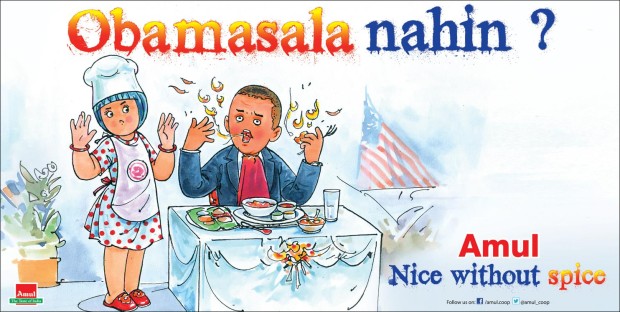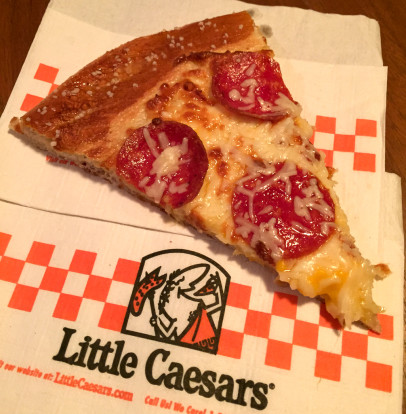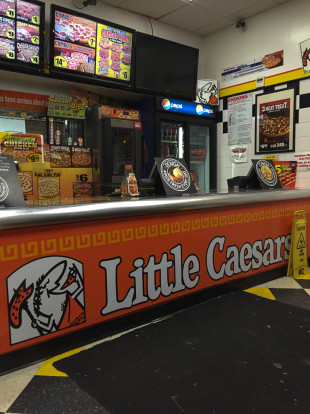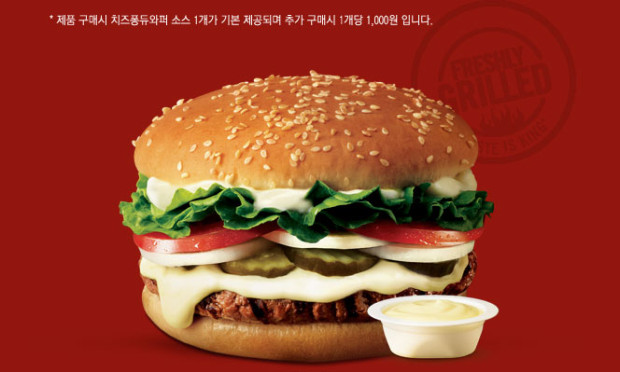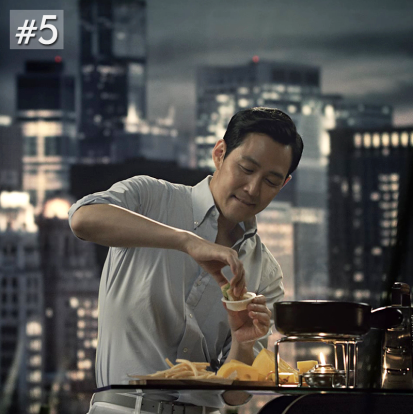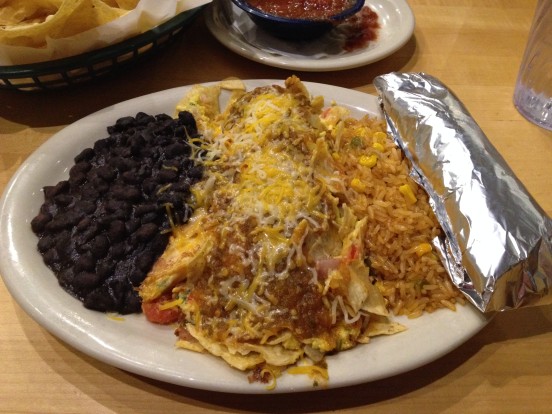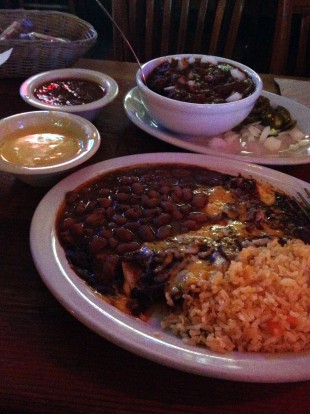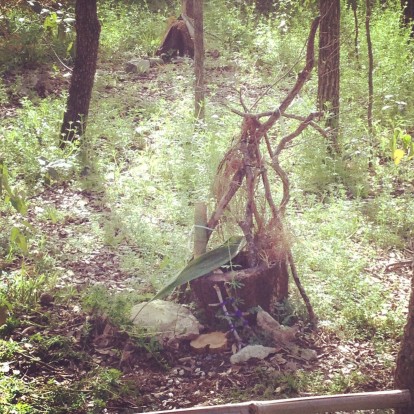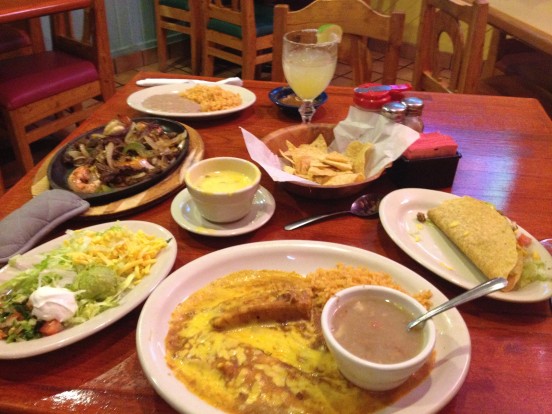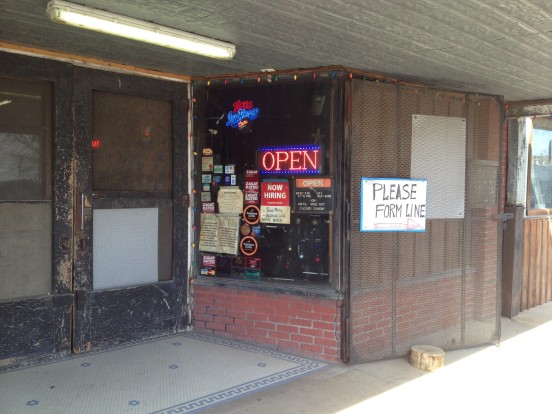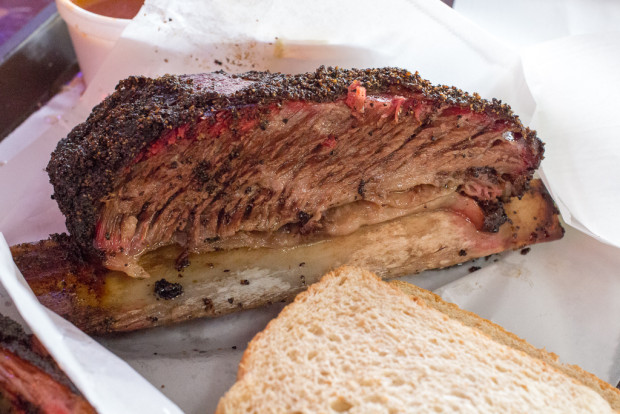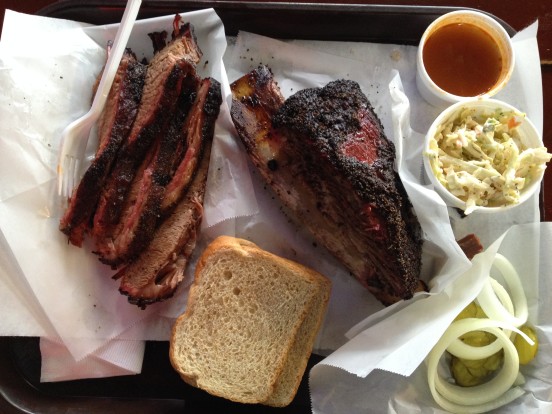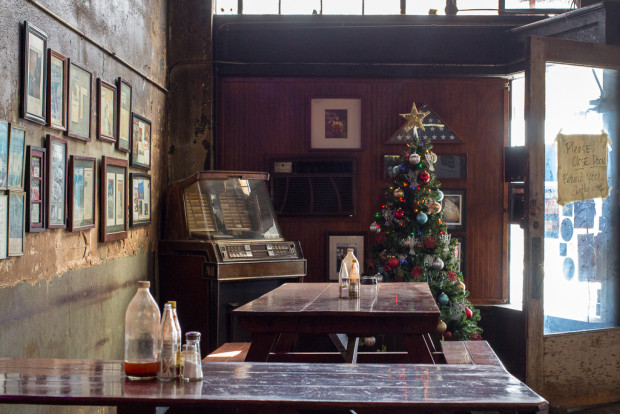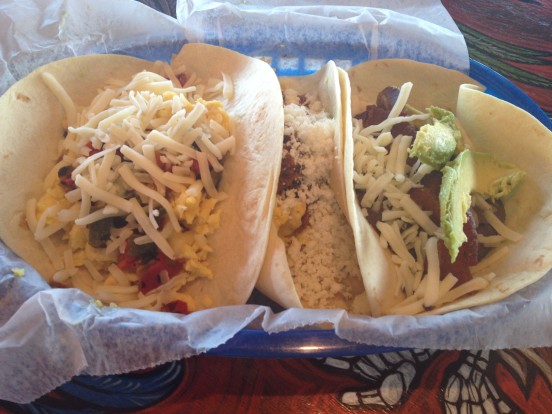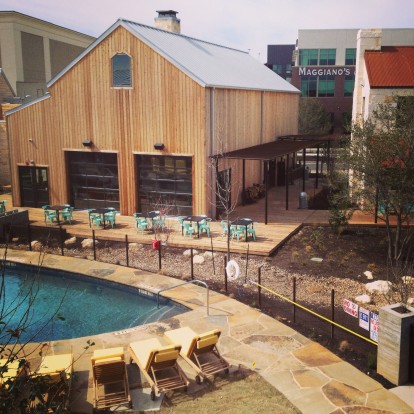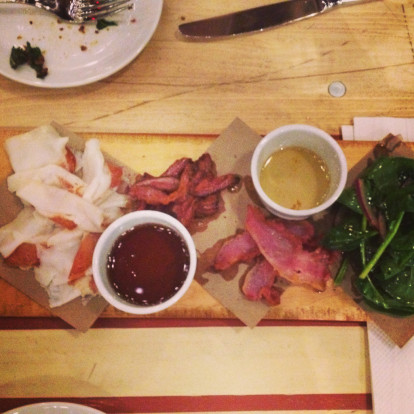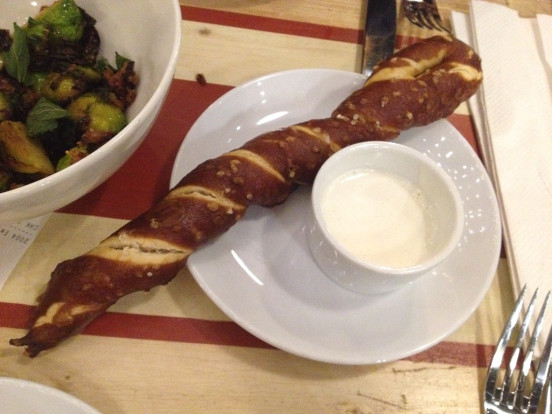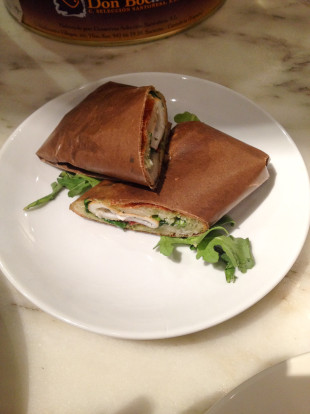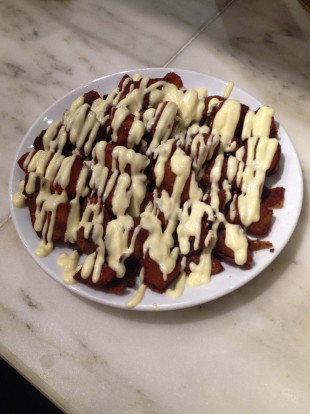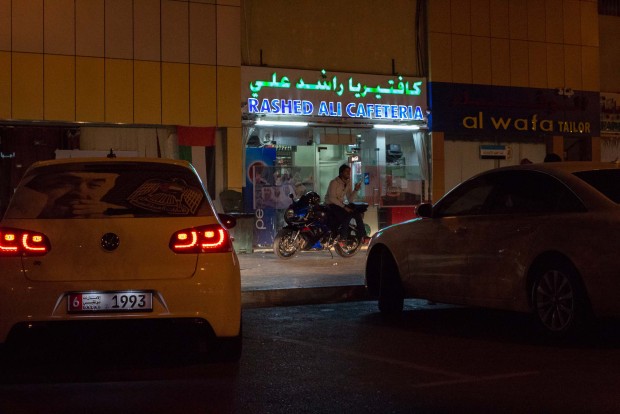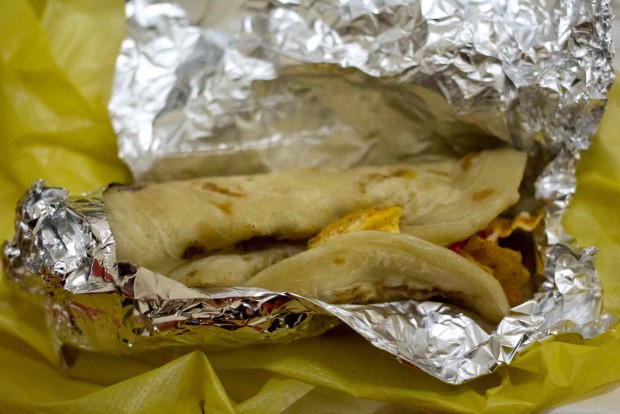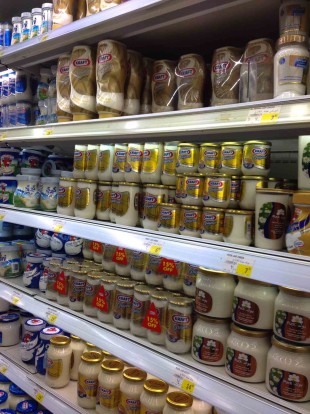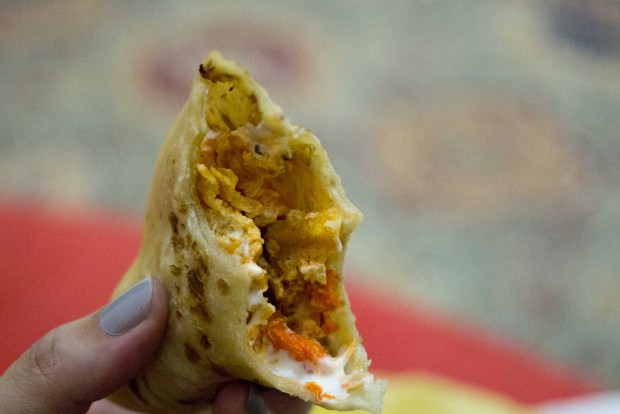Late last year I was in Dubai, for the second time in less than a year and a half, which seems ludicrous in retrospect. I haven’t written about everything I intended to for varying reasons, mostly un-dramatic. 2014 has been quick and full of fits and starts that have demanded focus and left little time for tying up loose ends. I didn’t leave the country once this year. I also spent my life savings on an apartment you’d never see featured in “The Hunt.”
It goes without saying that Dubai is kind of a weird place and not a place that is on anyone’s food radar like Singapore, also a substantial flight away in another heavily malled city in love with air conditioning and luxury goods.
There is a food culture, though. I’d like to say that it’s on the verge–and it is being tapped into, for sure. Just last week Andrew Zimmern was Instagramming visits to camel farms (there is no way camel meat won’t be a bizarre eat) and fish sauce makers, and Penny De Los Santos, a Saveur photographer, was posting shots of fish markets and chai vendors. I imagine the angle will be Dubai behind the glitz, a.k.a. a taste of the real Dubai.
I could drum up very little interest when pitching in earnest earlier this year. Americans don’t go to Dubai and would need someone well above my stature to convince them otherwise, and foreign publications prefer local stringers. My fascination was and is more along the lines of what is local food when there aren’t many locals? Emiratis make up just roughly 13% of the seven United Arab Emirates’ 9.2 million population.
So, what is Emirati food? It’s not hummus or pita or shawarma, though those Levantine staples in the form of Lebanese food, specifically, enjoy great popularity in the UAE and have blended into the culture. There are definitely flatbreads, rice and grilled meats and seafood. Traditionally, the cuisine isn’t elaborate, especially considering that it’s born of nomadic desert-dwellers pre-oil boom.
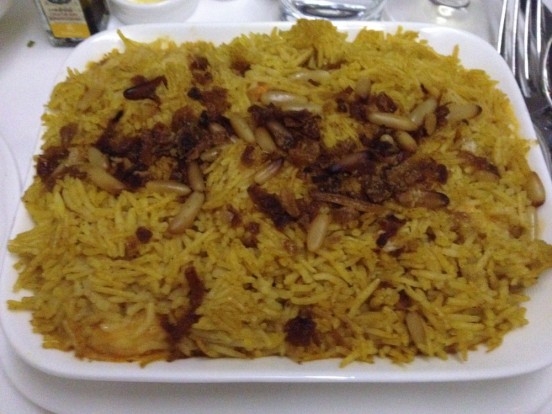
Shrimp machbous, akin to a biryani and using loomi, a dried black lime powder, and an Arabic spice blend called baharat, served in Emirates business class (the most amazing, unexpected, free upgrade I’ve experienced in my entire life) is a traditional Emirati dish. Of course, I wouldn’t recommend anyone judging anyone’s cuisine based on airline food.
There aren’t a lot of restaurants that bill themselves exclusively as Emirati–whether because the food is considered home cooking, the small number of locals, or that it’s not assumed to be of interest to tourists or expats–though that’s starting to shift. There also doesn’t appear to be a strong urge to appeal to outsiders, and especially not women on their own.
A half week here (during Ramadan, no less) and ten days there is not enough to call myself an expert. I don’t have all the answers, but I do have a few first-hand suggestions for the curious.

Al Fanar is probably the best known example and goes as far as calling itself “the first and only” Emirati restaurant in Dubai. It also recently opened a new branch at Town Centre, Jumeirah. The one I visited at Festival City is in a mall like most things and a little kitschy with an outdoor tableaux of camel statues and 1960s vehicles meant to evoke an older, simpler Dubai. It also happens to be near a Trader Vic’s and a Jamie Oliver restaurant. Harees, above, is a stiff porridge made from cracked wheat and lamb stewed into oblivion, then accented with clarified butter. I was warned against it being “like Quaker Oats,” which it isn’t really. Previously on Al Fanar.
Milas is a newer entrant (in Dubai–the original location is in the more conservative emirate to the north, Sharjah) and slicker. It’s located in a ground floor section of the Dubai Mall devoted to denim that’s called…wait for this…”The Village, Denim District at The Dubai Mall.” This was the middle of the afternoon, not prime dining time, but I was the only patron sitting “outside.” Lack of diners was a common occurrence everywhere I went. (And some establishments like Bait 1971 seemed to keep hours based on whims–I was only able to try Bait Al Bahar, the more generic Middle Eastern restaurant on the beach.)
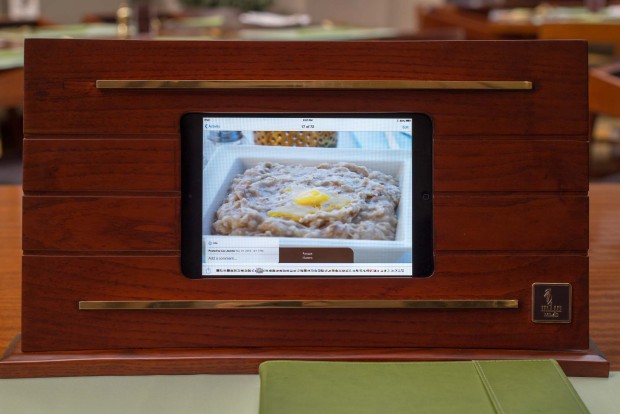
The menu is not just on an iPad but is presented in a wooden case propped up vertically. Yes, that’s harees on the screen. And yes, two harees experiences (I’d also tried it at the Sheikh Mohammed Centre for Cultural Understanding) was plenty for a short time frame.

A chickpea and pine nut salad appeared with sesame-seeded, za’atar-spiced oil and what I want to call pita but the menu in English says is Oriental bread.
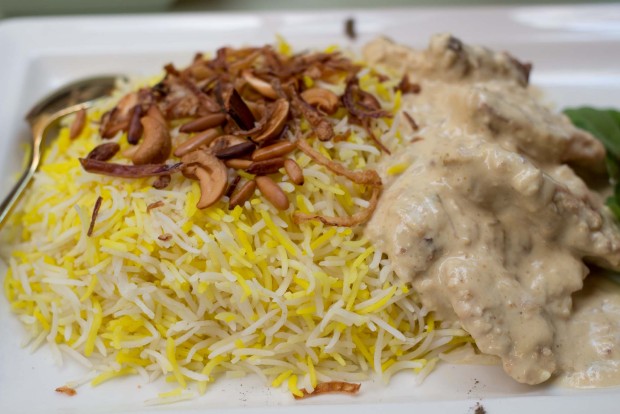
Mbahar deyay, which I ordered because it was the signature dish and one person can only eat so much, is very close to an Indian korma. The chicken breast is served in a lightly spiced, creamy sauce with saffron rice garnished with fried onions and cashews. This also came with green and red chile sauces on the side that weren’t Indian in the least and closer to the flavor and consistency of Sriracha. For the record, outside of resorts food is not prohibitively expensive in Dubai even at a relatively upscale mall restaurant. This entree cost about $16.
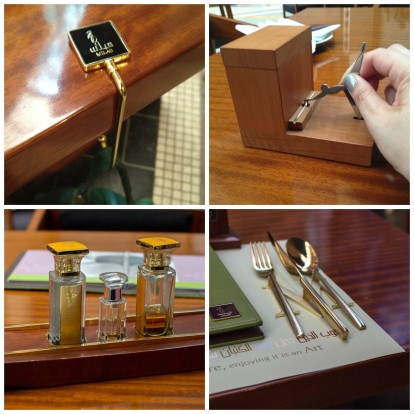
I was kind of digging the purse hook, gold flatware and toothpick caddy (and that palate was used correctly on the website). Oh, and you are brought perfumes at the end of the meal, which are meant to emulate the hospitality you would experience at someone’s home. I would not know because I don’t think just anyone gets invited for dinner at an Emirati’s house.

Klayya, a cafe in a smaller shopping center that looked to only be a 20 minute walk from my hotel but ended up being a trauma because the sidewalks literally end a few blocks outside of the central cluster I was staying in, was the source of one of my favorite meals. Once again, I was the only customer.
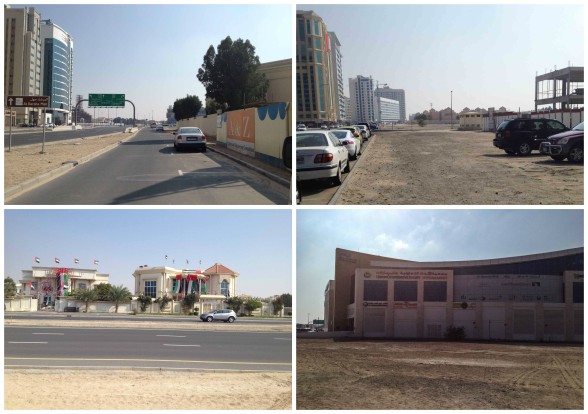
In case you wondering, no one walks in Dubai even in the winter when the high is only 79 degrees. The way to Al Barsha Mall by car quickly led to lots of sand and dirt for pedestrians, as well as enormous home compounds covered in flags that may or may have not been a result of the National Day celebration.
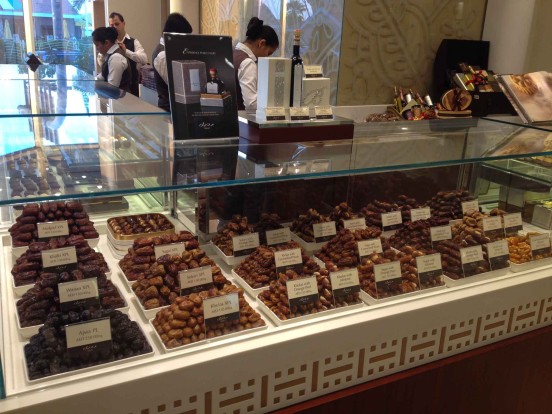
Where Emirati food might excel, in my sweet-and-savory-obsessed opinion, is at breakfast. Maybe I just really love dates. (Bateel, a chain whose counter is pictured above, is where one satisfies that urge–I love that even a predominately Muslim country will package confections in a Christmas tree shaped box for the holidays.)
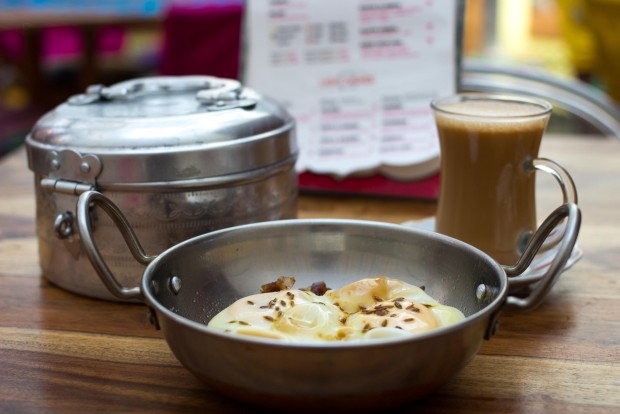
From 8am to noon, you can order breakfast combos like this ryoog yerana, described as an omelet, with three breads and karak, a local version of chai. Clearly, it’s not an omelet but hard-cooked eggs (I have no idea if runny yolks, my preference, are not standard) sprinkled with cumin seeds and sitting atop a slew of caramelized, charred on the bottom dates. It’s a lot of food–and only $9.50, by the way.
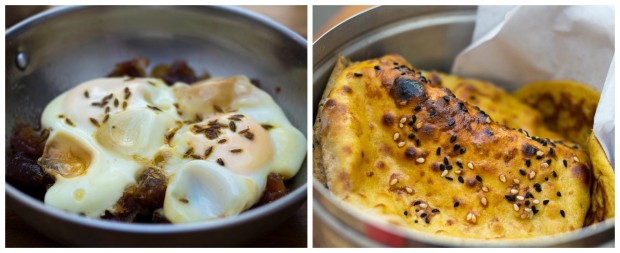
You can’t see all three in this photo, but the tin of breads holds chebab, which is almost exactly like an American pancake, khameer, the Emrirati answer to pita, and regag, a dosa-like crepe.
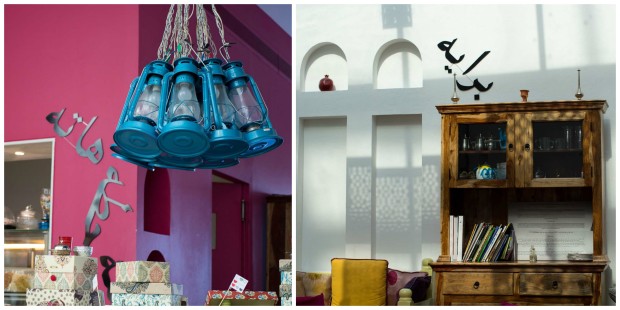
Candied flavors paired with protein are kind of love or hate. If you like bastilla or sweet and sour pork or monte cristo sandwiches, you will be on board with Emirati breakfasts. This wasn’t technically my first one. Jetlag bolstered by two days of heavy drinking (big resort brunch, then small town hotel bar crawling) almost killed me (I say only in half-jest). My friend’s sister who I stayed with in Al Ain, Abu Dhabi’s second city, on my third night, reported back to her sibling that I might be dead because I hadn’t moved from the couch long past what seemed like a reasonable amount of sleep. When I was finally able to pull myself together that afternoon, I was made a dish involving scrambled eggs, crumbly white cheese and date syrup. It was amazing. I also credit it with reviving me.

Mama Tani is a little new school and specializes in using khameer, the traditional flatbread, in less traditional ways. And I almost hate to point it out, but look, no one’s there.
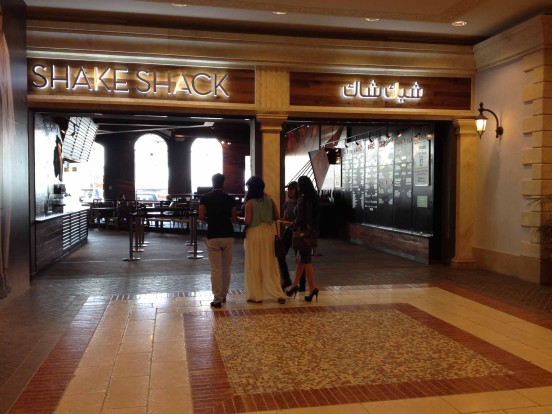
It’s not a matter of cuisine or name recognition, I’m afraid. This same shopping center, Mercato Mall, along touristy Jumeirah Beach Road also houses one of Dubai’s five Shake Shacks and there were certainly no lines there either.
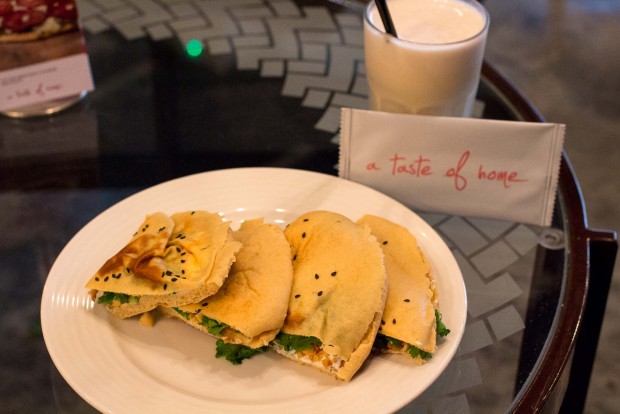
I chose a savory version stuffed with cilantro, cream cheese (not American cream cheese, but a white processed spread* that became a source of obsession) and toasted walnuts, and a rose pista, which is like a thin, icy milkshake made with rose water and pistachios. There are also sweet khameer with saffron, rose and cardamom creams. Oh, and camel hot chocolate.
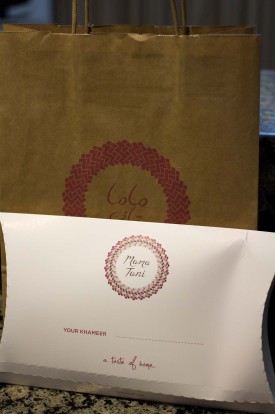
I appreciate the attention to design and branding. A British family did stop in while I was there and got food to go, or rather “takeaway” as they say in the rest of the world including Dubai and the UK, which made me think that asking for a doggie bag wouldn’t be a big deal (it’s not). The cardboard Fed Ex-like package kept my khameer safe (who needs refrigeration?) while I continued on my food ordering while not particularly hungry journey. Envelopes are the style, apparently, because I encountered another later.
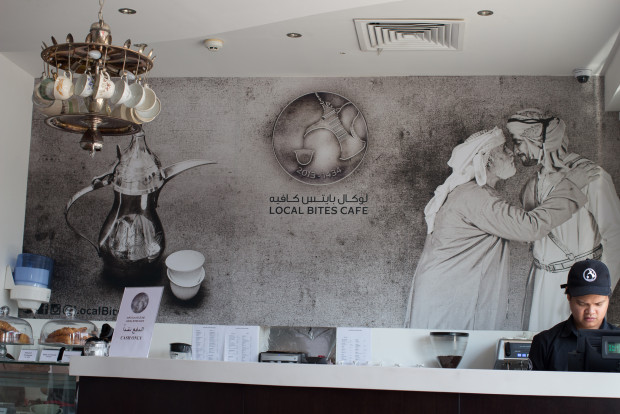
Local Bites Cafe is on Jumeirah Beach Road like Mama Tani, but seven blocks south, i.e. not walkable as I quickly learned. Distances are so hard to judge because there are two main drags that everything is clustered around and the rest is desert, a bit like Vegas. Because of the city’s vertical nature when represented cartographically, the scale is off and what looks like two inches on Google Maps is close to ten miles.
Local Bites Cafe had customers. A tourist laptop guy and two Emirati women who sat behind me and wanted to order their driver something with cheese while he waited in the SUV outside. Despite the strangeness of having a chauffeur (this isn’t Saudi Arabia–not only can women drive, there are female taxi drivers) it was nice seeing two women out and about with neither men nor children and I don’t mean that to sound condescending.
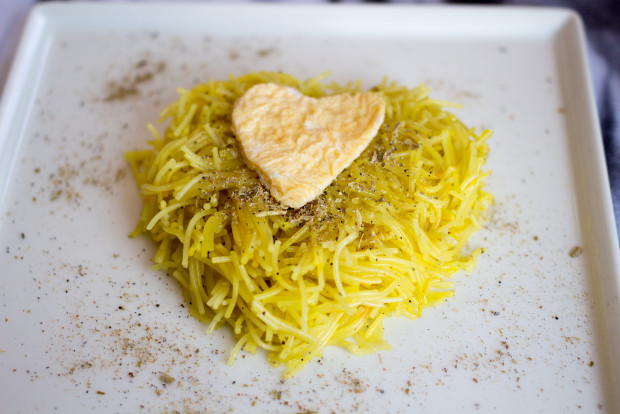
Balaleet is a pretty traditional breakfast that also does the sweet savory thing. It’s vermicelli cooked with saffron, rose water, cinnamon, sugar and cardamom, emphasis on cardamom, and topped with slices of omelet, in this case an adorable cut out heart.

If you dislike these spices, you’ll be in big trouble if offered Arabic coffee. And you might be. It’s another gesture of hospitality, usually presented with small no-handle cups. My non-Western chain hotel had a pot in the lobby for the taking. Served in a curvy dallah, important enough to appear on the one dirham coin and serve as Local Bites’ logo, the coffee also gets blended with cardamom, saffron, rose water and cloves. It’s not necessarily something I’d want to drink daily on its own in the morning, but it pairs well with dates and these sweetened egg dishes.

*While writing this, I received a very important Facebook alert from my friend in Abu Dhabi coming home to South Carolina for Christmas. Cheese spread processed in the UAE!
 Ouch. El Original had better watch its back after Javelina’s evisceration. Honestly, the primary reason I visited the former and not the latter is because you can reserve a table between 6pm and 9pm on Open Table. Less importantly to the world at large, I can also walk to it from work.
Ouch. El Original had better watch its back after Javelina’s evisceration. Honestly, the primary reason I visited the former and not the latter is because you can reserve a table between 6pm and 9pm on Open Table. Less importantly to the world at large, I can also walk to it from work.
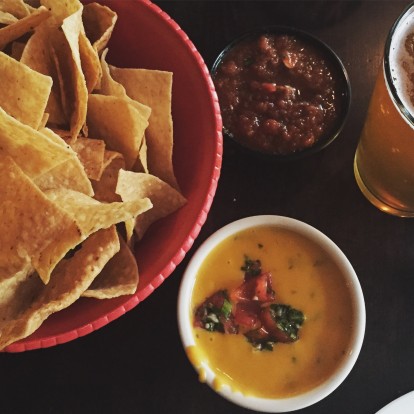
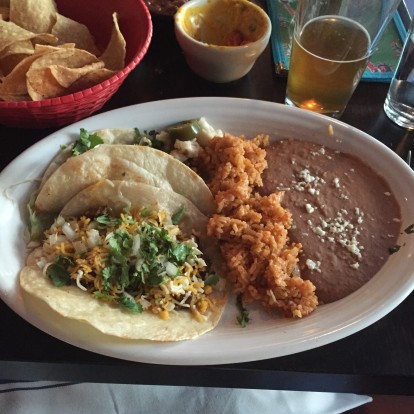
 Follow
Follow






















